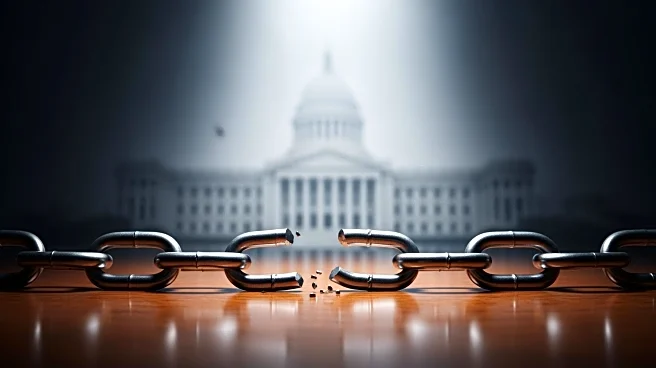What's Happening?
The ultra-Orthodox Shas party has announced its resignation from all coalition posts in Prime Minister Benjamin Netanyahu's government. The decision comes after the government failed to advance a draft
bill that would exempt tens of thousands of ultra-Orthodox men from military service. The Council of Torah Sages had instructed that the bill be brought to a vote by the opening of the Knesset's winter session, a deadline that was not met. Shas has stated it will continue to coordinate with other ultra-Orthodox factions and consult with the Council of Torah Sages before Knesset votes.
Why It's Important?
The resignation of Shas from coalition posts signals a potential crisis for Netanyahu's government, as it highlights internal divisions and challenges in passing legislation critical to ultra-Orthodox communities. The stalled draft bill is a contentious issue, reflecting broader societal debates on military service exemptions and the integration of ultra-Orthodox populations into national responsibilities. The political instability could affect the government's ability to pass other key legislation and maintain coalition unity, impacting governance and policy-making in Israel.
What's Next?
The Shas party's decision to resign may lead to further political negotiations and attempts to resolve the draft bill dispute. Prime Minister Netanyahu's government will need to address the concerns of ultra-Orthodox factions to prevent further fragmentation within the coalition. The outcome of these negotiations could influence the government's stability and its ability to implement policies effectively. Additionally, the situation may prompt discussions on the role of religious parties in Israeli politics and their influence on national legislation.
Beyond the Headlines
The resignation of Shas from coalition posts underscores the complex relationship between religion and politics in Israel. The draft bill dispute highlights ongoing tensions between secular and religious communities regarding military service obligations. This development may provoke broader discussions on the integration of ultra-Orthodox populations into Israeli society and the balance between religious autonomy and national duties.









